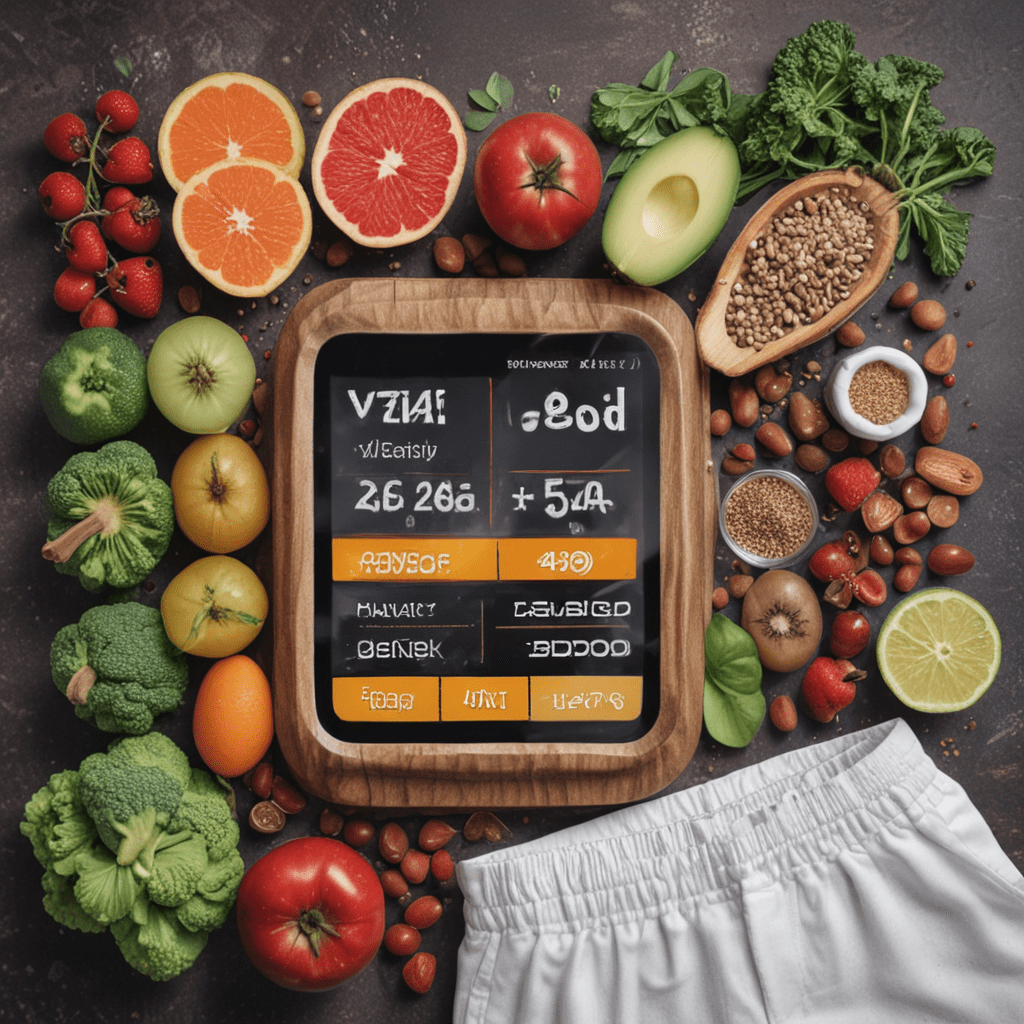
Vegan Diet: Balancing Blood Sugar Levels for Health
1. Introduction
For optimal health, managing blood sugar levels is paramount. The vegan diet has emerged as a powerful tool for maintaining blood sugar stability due to its unique composition. This article delves into the intricacies of blood sugar regulation, the role of diet in controlling it, and how a vegan diet specifically contributes to blood sugar balance.
2. Understanding Blood Sugar Regulation
Blood sugar, or glucose, is the body's primary energy source. Maintaining healthy blood sugar levels is crucial for proper cellular function, organ health, and overall well-being. The pancreas releases insulin to facilitate glucose uptake by cells, while the liver releases glucose when levels drop. Dysregulation of this process can lead to blood sugar imbalances, such as hyperglycemia or hypoglycemia.
3. The Role of Diet in Blood Sugar Control
Diet significantly impacts blood sugar levels. High-glycemic index (GI) foods, such as refined carbohydrates and sugary drinks, cause rapid blood sugar spikes. Conversely, low-GI foods, such as whole grains, legumes, and non-starchy vegetables, provide a sustained release of glucose, promoting blood sugar stability.
4. Benefits of a Vegan Diet for Blood Sugar Balance
Vegan diets naturally align with blood sugar control principles. They are typically low in refined carbohydrates and high in fiber, which slows down glucose absorption. Moreover, vegan diets provide an abundance of antioxidants, which protect against oxidative stress and cellular damage linked to diabetes.
5. Specific Nutrient Considerations
Certain nutrients play a crucial role in blood sugar regulation. Fiber, found in whole plant foods, helps regulate glucose absorption. Chromium, present in nuts and legumes, enhances insulin sensitivity. Magnesium, abundant in leafy greens and avocados, supports glucose metabolism. Incorporating these nutrients into a vegan diet further enhances blood sugar balance.
6. Meal Planning and Blood Sugar Stability
Mindful meal planning is pivotal for managing blood sugar levels. Prioritizing whole, unprocessed foods, such as fruits, vegetables, legumes, and whole grains, ensures a steady supply of glucose. Aim for meals that include a balance of complex carbohydrates, lean protein, and healthy fats to slow down digestion and prevent spikes.
7. The Importance of Regular Physical Activity
Physical activity enhances insulin sensitivity, improving the body's ability to utilize glucose. Engage in at least 150 minutes of moderate-intensity exercise per week, such as brisk walking, cycling, or swimming. Exercise helps muscles absorb glucose for fuel, reducing blood sugar levels.
8. Managing Stress and Sleep for Blood Sugar Control
Stress hormones can elevate blood sugar levels. Conversely, adequate sleep promotes the release of hormones that improve insulin sensitivity. Incorporate stress-reducing practices like yoga, meditation, or spending time in nature. Aim for 7-9 hours of quality sleep each night to optimize blood sugar control.
9. Considerations for Individuals with Prediabetes or Diabetes
Individuals with prediabetes or diabetes may require specific dietary adaptations. Consult with a healthcare professional or registered dietitian for personalized guidance. Medications or insulin therapy may be necessary to manage blood sugar levels effectively. Regular monitoring and lifestyle modifications are crucial for maintaining stability.
10. Conclusion and Practical Tips
A vegan diet can significantly contribute to blood sugar balance due to its low-GI, high-fiber, and nutrient-rich nature. By following these practical tips, you can optimize your vegan diet for blood sugar control:
- Prioritize whole, unprocessed plant foods.
- Include a variety of fruits, vegetables, legumes, and whole grains in your meals.
- Emphasize complex carbohydrates over refined options.
- Add lean protein and healthy fats to meals to slow down glucose absorption.
- Engage in regular physical activity.
- Manage stress and prioritize quality sleep.
- Consult with healthcare professionals for personalized guidance if needed.
By embracing these principles, you can effectively balance your blood sugar levels, promote overall health, and reduce the risk of chronic diseases associated with blood sugar imbalances.
FAQ
Can a vegan diet reverse diabetes?
While a vegan diet can significantly improve blood sugar control and reduce the risk of developing diabetes, it's important to note that it may not reverse existing diabetes.
Is a vegan diet safe for everyone?
A well-planned vegan diet can be safe and nutritious for most people. However, it's always advisable to consult with a healthcare professional before making any significant dietary changes.
What are some good sources of protein for vegans?
Excellent sources of plant-based protein include legumes (beans, lentils, chickpeas), tofu, tempeh, edamame, nuts, seeds, and quinoa.


